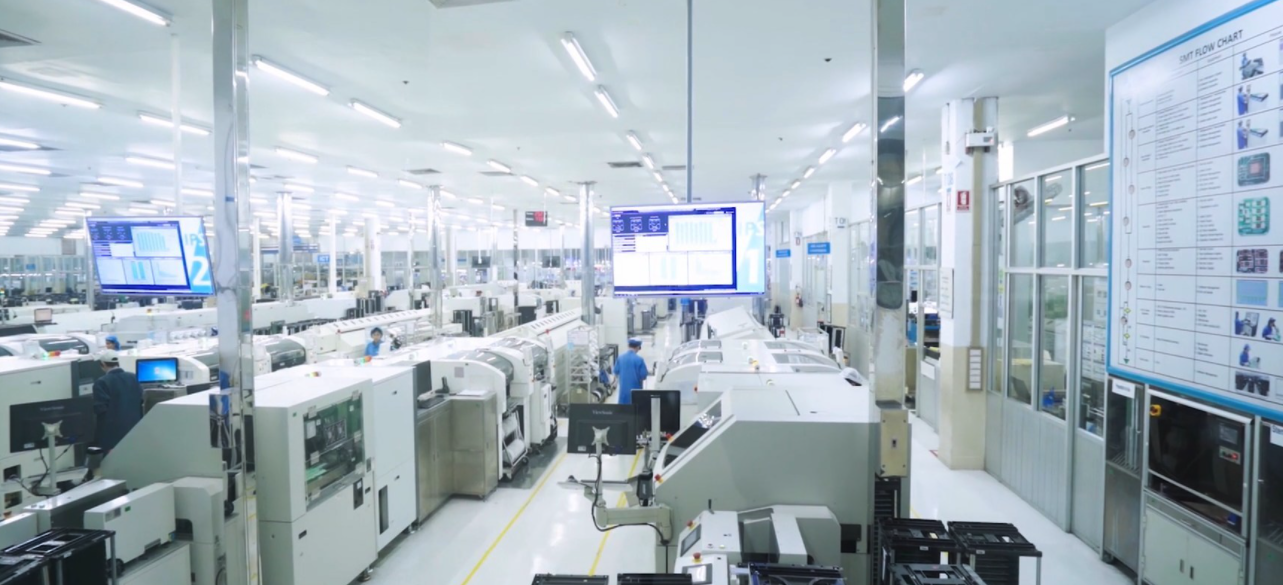The incentives Thailand announced recently to promote investment in the manufacturing of semiconductors and related industries, as well as research and development, aim to further strengthen Thailand’s electronics supply chain at a critical juncture when the sector sees rising investment in face of global challenges, the Thailand Board of Investment (BOI) said.

“The Covid-19 crisis has further increased the demand for electronics products as well as critical parts, and companies, including many which already have investments in Thailand, need to expand to ensure resilience in their supply chain,” said Ms Duangjai Asawachintachit, Secretary General of the BOI. “That’s why we decided to strengthen the incentives we offer to this sector, particularly the activities requiring more advanced technology or large-scale investment.”
In the first six months of 2021, the electrical appliances and electronics industry attracted the most investment among Thailand’s target sectors with 77 projects worth 61 billion baht (USD1.8 billion), a value 136% higher than in the year earlier period. E&E represented 15.8% of the combined value of investments pledged from January to June during that period, according to data the BOI released last week.
The value of E&E’s applications in the first half of 2021 is higher than the 50.3 billion baht the sector saw in the whole 2020, when it represented 11.6% of total adjusted pledged value, and was already ahead of all other target sectors.
The recently approved enhanced investment promotion policy for the electronics industry adds benefits for front-end capital and technology-intensive manufacturing such as wafer fabrication, IC substrate, IC and IC testing as well as large-scale mid-and back-end manufacturing. Investment in wafer manufacturing will be granted a corporate income tax exemption of 10 years, while advanced integrated circuits, IC substrate and printed circuit board projects with investment in machinery of at least 1.5 billion baht will get a CIT exemption of 8 years.
The strength of Thailand’s supply chain is reflected in its exports of electronic components and equipment, the country’s top export category, which reached USD 31 billion in 2020. Thailand currently ranks 13th in the world as a base for electronic products and parts manufacturing. In the Printed Circuit Board (PCB) market alone, Thailand is the world’s 7th largest exporter.
Of the 615 manufacturers operating in the Thai electronics industry as of 2020, almost a third (31%) are classified as large multinational manufacturers, such as Minebea Misumi, NXP Semiconductors, Seagate Technology, Western Digital, Celestica, Microchip Technology, Toshiba Semiconductor, Benchmark Electronics, Sony Device Technology, and Delta Electronics.
Thailand offers a large pool of human resources with 750,000 people currently working in Thailand’s E&E sector, and the government is actively stepping up efforts in upskilling the workforce to support the rapidly changing technologies. Additional tax incentives are also offered to encourage companies to take part in human resource development.
In another step to stimulate competitiveness and technology upgrades in advanced manufacturing sectors, especially electronics, the BOI also approved in June an increase of the benefits granted to companies investing in research and development. Firms spending not less than 1% of their total sales for the first 3 years in R&D, or not less than 200 million baht, will receive an additional corporate income tax exemption for up to 5 years with no ceiling, the number of additional years depending on the amount of R&D investment. For companies adding R&D investment to the main operation, the longest combined tax exemption period available is 13 years.